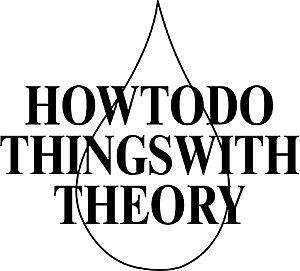2024-2025 Ana Teixeira Pinto's seminar: Evil
The seminar is conceived and offered by Ana Teixeira Pinto
The seminar from Confluence to Confluence
Seminar participants second year: Davide La Montagna, Eszter Dobos, Maria Miguel Pratas and Christelle Makris.
Seminar participants first year: Billie Meiniche, Carlos Azeredo Mesquita, Erik Peters, Sarmistha Bose, Nanna Stigsdatter Mathiassen, Asmaa Barakat, Jip van der Hek
Evil
INTRODUCTION:
In her response to the Holocaust and attendant Nazi atrocities, Hannah Arendt set the stage for postwar debates by stating that that “the problem of evil would be the fundamental problem of postwar intellectual life in Europe.” As John Roberts details in his book The Reason of Unreason, after 1945, western democracies “embark on a massive re-assimilation of the debate on “evil” with post World War II reconstruction predicated on the idea that the defeat of nazism meant the victory of humanism and the renewal of a universalist legacy. But the Allied fight against fascism was in fact a “fight to restore a set of older imperialist global arrangements” which only later “became the struggle against fascism.” The concept of “evil” and its attendant irrationality, relieved the pressure on bourgeois complicity with “pre-war race ideologies and reactionary forms of social order.”
In his seminal work After Evil: A Politics of Human Rights, Robert Meister argues that “political transitions are not just new beginnings” but also “survivor stories.” That is, the survivors get to enjoy a new beginning: Today’s dominant view of humanism is thus not addressed to “victims who would become revolutionaries but, rather, to beneficiaries who no longer identify with the perpetrators” and can, as a result, conceive of themselves as “would be rescuers,” engaging in armed intervention in the name of humanitarian values. But the geopolitical rivalries between the West and its adversaries only map easily onto the moral boundaries between civilisation and barbarism if one ignores inconvenient or destabilising facts. What must remain thus unspeakable for Western representations of freedom and civility to “sustain their power of universal reiteration in contemporary political theory.” To fight ”evil” is also a way of rationalising the limits of politics, and clearly delineate its outside. Nazis are now a video game antagonist, lumped together with Zombies, Orcs, terrorists, and giant spiders.
In our seminar we will look into shifting representations of ”evil” and their cultural legacies, focusing in particular on: Demons and Witches, Monsters, Vampires, Zombies, Mutants, Terrorists, Serial Killers, and Sharks.
Readings:
Arendt, Hannah. Eichmann in Jerusalem: A Report on the Banality of Evil (Penguin, 2006).
Dorlin, Elsa. Self-Defense: a Philosophy of Violence. Edited by Kieran Aarons. Brooklyn: Verso, 2022.
Edelman, Lee. No Future: Queer Theory and the Death Drive. Duke University Press, 2004.
Halberstam, J. Skin Shows: Gothic Horror and the Technology of Monsters. Duke University Press, 1995.
Martino, Ernesto de. The End of the World: Cultural Apocalypse and Transcendence. University of Chicago Press, 2023.
Meister, Robert. After Evil: A Politics of Human Rights. Columbia University Press, 2010.
Ngai, Sianne. Ugly Feelings. Harvard University Press, 2005.
Ostling, Michael Fairies, Demons and Nature Spirits: “Small Gods” at the Margins of Christendom. Palgrave Macmillan, 2017.
Roberts, John (2018). The Reasoning of Unreason: Universalism, Capitalism and Disenlightenment. Bloomsbury Academic, 2018.
Sternhell Z. Neither Right nor Left : Fascist Ideology in France. University of California Press; 1986.


